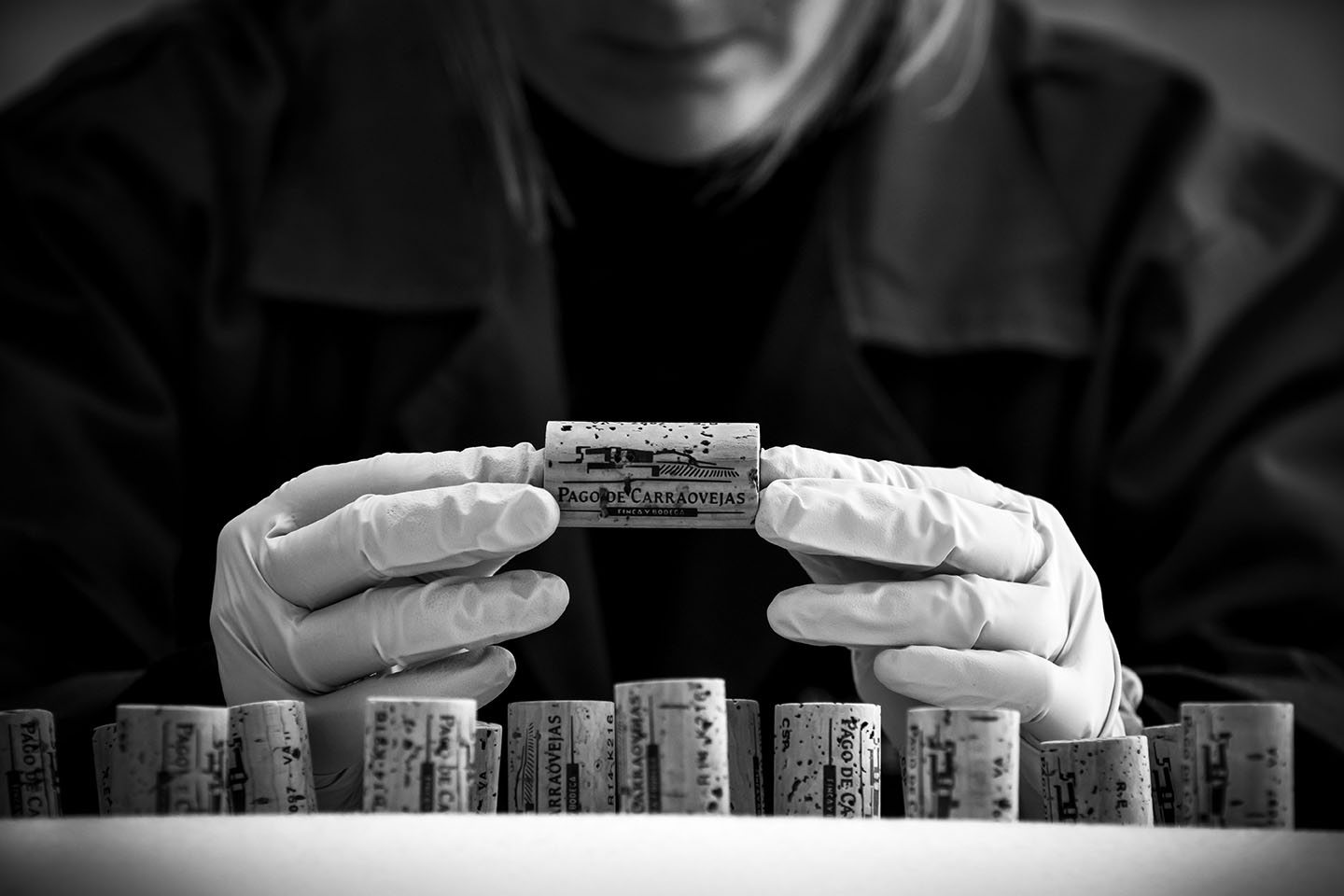Wine corks quality control at Alma Carraovejas: a guarantee of excellence
At Alma Carraovejas we know that the quality of a wine depends not only on its production, but also on all the materials that come into contact with it. From the vineyard to the service in the restaurant or the corkage at home, every detail matters. One of the most decisive elements, although sometimes forgotten, are the wine corks.
The importance of the wine corks
Cork is not just a stopper for wine. Thanks to its micro-oxygenation capacity, it allows an aging process that helps the wine to develop its full potential over time. But for this process to be perfect, the cork must be of the highest quality.
The quality of cork begins at its origin: the cork oak. Factors such as the climate and the place of origin of these trees determine the porosity of the cork, a fundamental characteristic for its behavior with the wine in the bottle.
Wine corks selection
At Alma Carraovejas we perform an exhaustive quality control on corks. Each order does not exceed 15,000 corks, which allows us to work with manageable batches and ensure the more precise control that we historically perform in the Pago de Carraovejas laboratory, although each project analyzes its own batches.
When a new batch of corks arrives at our facilities, we extract a sample of 125 units. The analysis process is divided into two phases:
- External control: We send 50 corks to an independent laboratory, where physical tests are performed (density, porosity, size, diameter, etc.) and the content of trichloroanisole (TCA), the main compound causing the so-called “cork smell”, is analyzed. If the TCA level exceeds the contractually agreed threshold, the entire batch is rejected.
- Internal control: Of the remaining 75 corks, we use 25 for physical analysis in our own laboratories, evaluating parameters such as weight, size, density and extraction force. The other 50 corks undergo sensory analysis: we place them in glass jars with non-chlorinated water for 24 hours. Then, different members of the laboratory, viticulture, winemaking and sustainability teams smell the contents. If two people perceive a deviation in the aroma of the same jar, the corresponding cork is analyzed to determine its TCA level. If the established limits are exceeded, the entire batch is rejected.
Quality assurance in wine corks
Although sample checks can never guarantee absolute reliability, they greatly reduce the risk of a bottle reaching the consumer with cork-related defects.
At Alma Carraovejas, our commitment is to offer wines that are always a safe value in a restaurant menu or at a lunch or dinner at home. Every moment we live is important. Our strict quality protocols, applied from the vineyard to the cork, are the basis of this guarantee.




